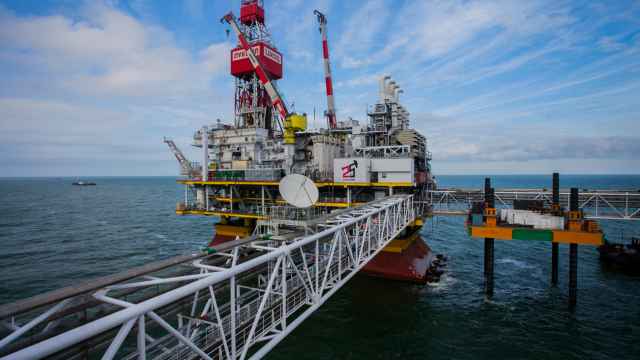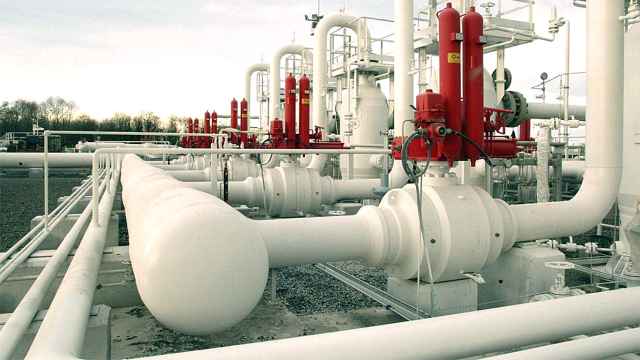Russia's oil and gas revenues increased by 16.9% year-on-year in January 2025, reaching 789.1 billion rubles ($8.6 billion), the Finance Ministry said last week.
The rise was driven by higher extraction tax receipts despite a slight decline from December levels.
The increase comes despite the Biden administration tightening sanctions on Russia’s oil and gas sector last month ahead of U.S. President Donald Trump taking office.
Revenue from the mineral extraction tax (MET), a key component of oil and gas revenues, grew by 19.4% compared to January 2024, reaching 1.05 trillion rubles ($10.9 billion). This included 840.4 billion rubles ($8.7 billion) from oil, which marked a 17.4% gain y/y, and 143.8 billion rubles ($1.4 billion) from natural gas, reflecting a 26.5% rise. Gas condensate contributed 64.9 billion rubles ($677 million), growing 32.4% from the same period last year.
Export duties amounted to 73.2 billion rubles ($763 million), growing by 6.9% compared with January 2024 but declining 12.1% from December. This decrease was attributed to the final stage of Russia’s oil sector tax reform, which shifted the burden of export duties primarily onto gas shipments. Gas export duties reached 72.6 billion rubles ($757 million), marking a 20.6% annual increase but a 10.3% decline from the previous month.
The Russian government also made 156.4 billion rubles ($1.6 billion) in compensatory payments to oil companies in January under the fuel damper mechanism, a scheme designed to stabilize domestic fuel prices. This was 6.7% higher than in January 2024 but 12.3% lower than in December.
Base oil and gas revenues, which form the core of Russia’s fiscal planning, totaled 758.3 billion rubles ($7.9 billion) in January, compared with 731.2 billion rubles ($7.6 billion) in December. Additional revenues, generated when market prices exceed the government’s benchmark level, stood at 30.8 billion rubles ($321 million), down from 59.1 billion rubles ($616 million) the previous month.
Russia adjusted its fiscal rule in November 2023, when President Vladimir Putin signed a law setting the base oil price for budget calculations at $60 per barrel, with a 2% annual increase from 2027. The previous framework had fixed base oil and gas revenues at 8 trillion rubles per year, with a 4% annual adjustment from 2026.
In 2024, total oil and gas revenues amounted to 11.13 trillion rubles ($116 billion), representing a 26.2% increase from the previous year. Base revenues accounted for 9.83 trillion rubles ($103 billion), while additional revenues contributed 1.3 trillion rubles ($13.5 billion). However, under Russia’s 2025-2027 budget plan, oil and gas revenues are projected to decline annually by 1.7% in 2025, 3.4% in 2026 and 7.6% in 2027, reaching 10.94 trillion rubles ($114 billion) in 2025, 10.56 trillion rubles ($110 billion) in 2026 and 9.77 trillion rubles ($102 billion) in 2027.
The Finance Ministry also provided updated foreign exchange intervention figures, estimating that additional oil and gas revenues in February would amount to 101.2 billion rubles ($1 billion). The shortfall in January, where actual oil and gas revenues fell 34.7 billion rubles ($361 million) below expectations, resulted in 66.5 billion rubles ($693 million) being allocated for foreign currency and gold purchases. The ministry said these operations would take place between Feb. 7 and March 6, with daily purchases equivalent to 3.3 billion rubles ($34 million).
This article first appeared in bne IntelliNews.
A Message from The Moscow Times:
Dear readers,
We are facing unprecedented challenges. Russia's Prosecutor General's Office has designated The Moscow Times as an "undesirable" organization, criminalizing our work and putting our staff at risk of prosecution. This follows our earlier unjust labeling as a "foreign agent."
These actions are direct attempts to silence independent journalism in Russia. The authorities claim our work "discredits the decisions of the Russian leadership." We see things differently: we strive to provide accurate, unbiased reporting on Russia.
We, the journalists of The Moscow Times, refuse to be silenced. But to continue our work, we need your help.
Your support, no matter how small, makes a world of difference. If you can, please support us monthly starting from just $2. It's quick to set up, and every contribution makes a significant impact.
By supporting The Moscow Times, you're defending open, independent journalism in the face of repression. Thank you for standing with us.
Remind me later.






